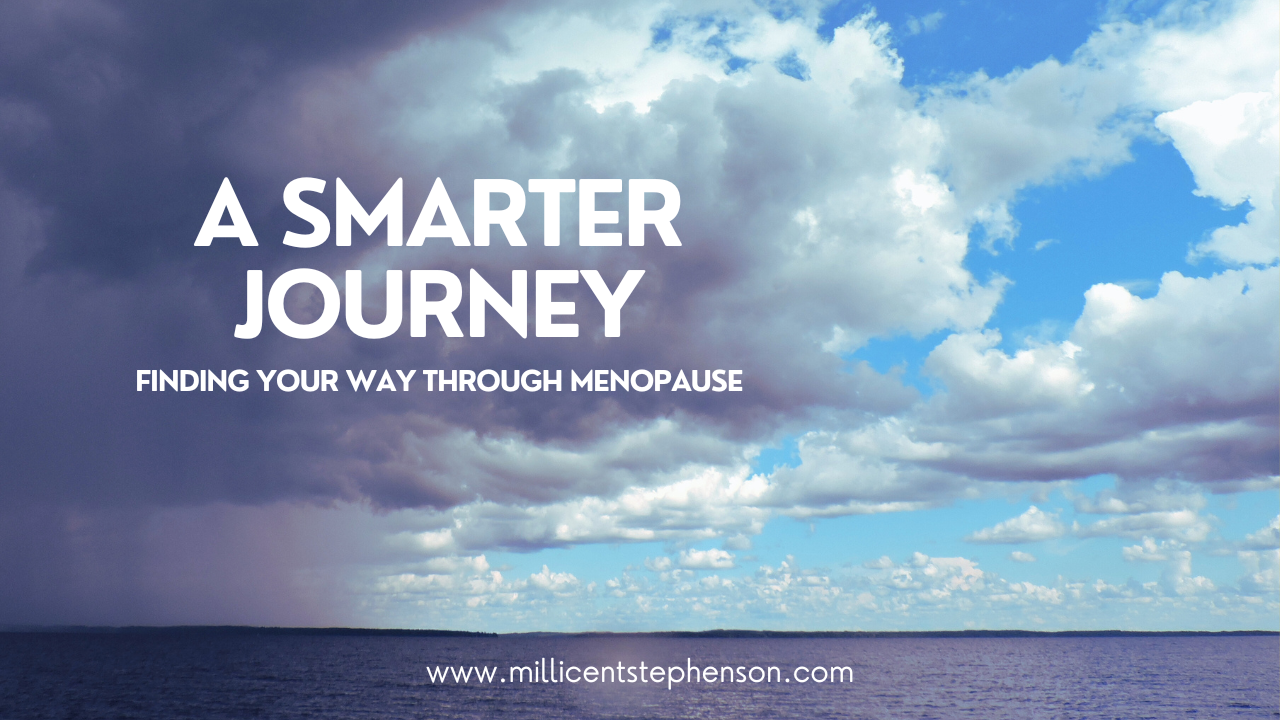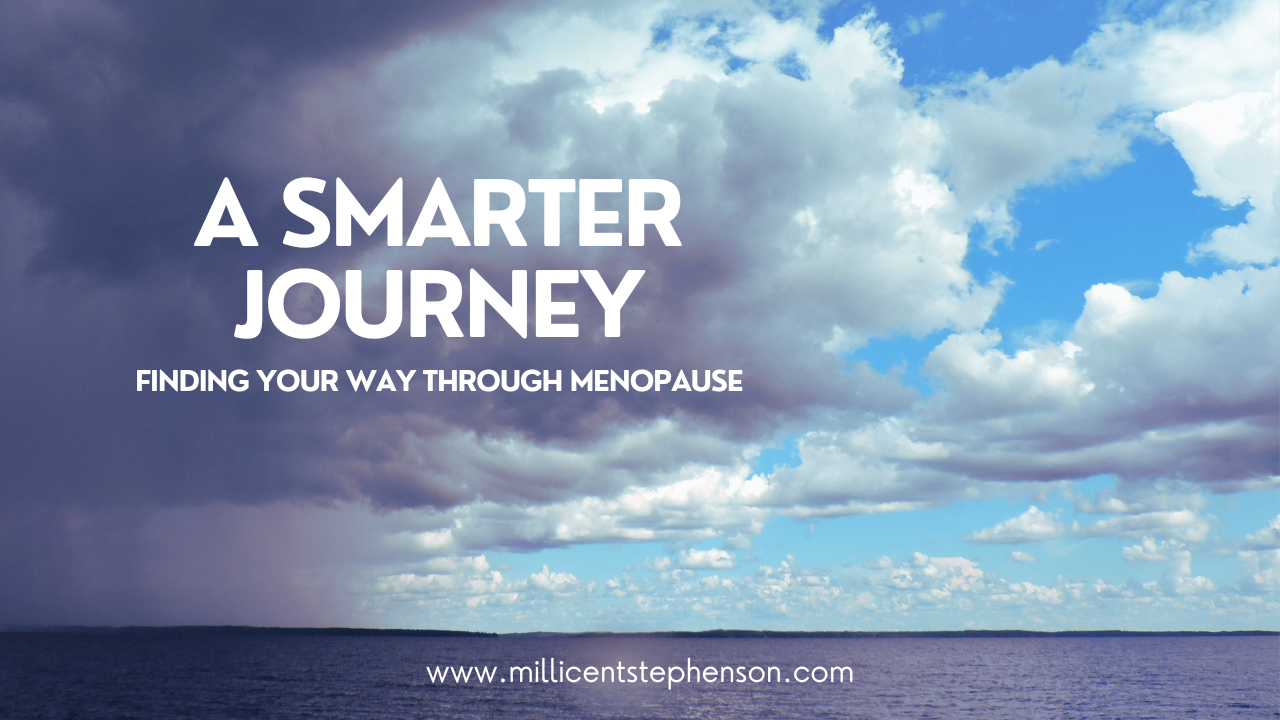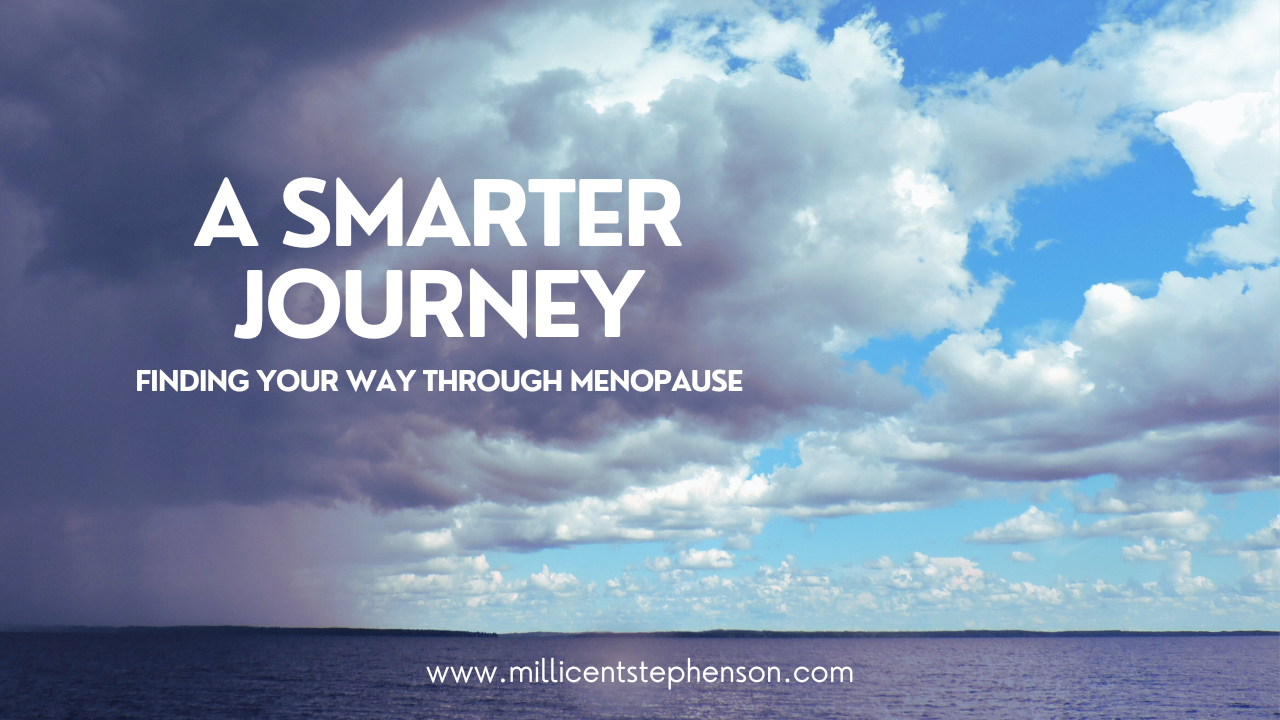World Menopause Day 2025: Lifestyle Medicine

Today is World’s Menopause Day, when people around the world raise awareness and share their experiences in regard to this natural stage of human life. For the occasion, this year, the International Menopause Society published the 2025 White Paper, The Role of Lifestyle Medicine in Menopausal Health: A Review of Non-Pharmacologic Interventions. There, they show strong evidence, gathered across multiple studies, that point at how healthy habits in daily life can make a real difference in the well-being of menopausal individuals.
This idea aligns neatly with Millicent's own experience as a menopausal musician. When I joined the Smarter Change 12 weeks programme with Pamela Windle, we focused in making healthy lifestyle changes tailored to the specific needs and workings of my body. That’s why I wore a blood sugar monitor for weeks, in order to learn exactly which foods favour my metabolism, and what is the best time to eat for me. We looked at how to optimise my sleep patterns within th...
A Smarter Journey: Sleep

Sleep was one of the areas of my life most affected by the changes of menopause. My quality of rest and sleep decreased drastically, affecting my health, performance and appearance. I took it to my own hands to fix it, and came up with 1o Things You Can Do If You Are Sleepless And Menopausal. It worked well, although —as it normally happens— there was room for improvement.
Said improvement came from what I learned during the Smarter Change programme with Pamela. There was some fine-tuning of things that I was already doing, and the introduction of a whole new concept:
I set up my sleep when I wake up
A lot is said about the importance of the last couple of hours before bed to ensure sleep quality. However, with Pamela, I learned that the first hour after waking up is just as crucial.
As soon as I open my eyes in the morning, I look for some light. I go to the yard or sit near the window, remove my glasses, and allow the sunlight to fall on my eyelids. Those minutes of quiet, that I...
A Smarter Journey: Stress Management

Stress, stress, stress, and more stress. We are living in a stressful world. When I was younger, it didn’t feel like that. I don’t know if it was because there were less stressful things, or because I was less aware, less connected with the state of society. In any case, I feel there is so much stress nowadays, with the social and political unrest, the rising cost of living, and the need to balance that with the challenges of relationships and other factors of life.
On top of all that, I’ve learned that menopause makes us more susceptible to stress. This happens due to the changes in our hormonal levels. For example, the reduction of estrogen in our bodies gives way for cortisol, a hormone produced as a stress response, to shoot up quicker and more drastically. Before taking Pamela’s course, I didn’t even suspect that what I considered overthinking and worry could actually be a natural response caused by menopause. That said, the fact that I understood why I was so stressed didn’t me...
A Smarter Journey: Physical Activity

Despite what some might think, working in music can be quite physically demanding. As a gigging musician, I have to travel to the venues where I’ll perform, often carrying my instrument and PA system with me. I bend, lift, shift and go up and down to set up my equipment. I move around the stage (sometimes off it and through the crowd, even) while performing. As a saxophonist, I really put my lungs to work every time I play, and I can’t run out of breath mid-concert!
Now, our bodies go through important changes during menopause that can have a huge impact on our energy levels and physical endurance. Menopausal people might experience changes in bone density, heart health, weight, body shape and mobility. This can affect our ability to keep working, so it’s important to exercise consciously and regularly in order to counter menopausal symptoms.
To be transparent, I didn’t struggle that much keeping up with physical activity prior to joining the SMART Rewind Metabolic Health 12 Week Pro...
A Smarter Journey: Nutrition

As a musician, I work funny hours, and I don’t like eating right before performing. This means that, some days, I’ll eat in the morning and not at all in the afternoon, to then be famished in the evening and gobble as much as I possibly can. Or maybe I’ll have a hasty lunch and not eat again until after an evening gig, late at night, which as we all know, isn’t good for the midriff at all. I’d frequently eat whatever was at hand, too, without putting much thought into it.
Generally speaking, I’ve always known that such lack of consistency is detrimental to my health, but I kind of put my concerns aside in favour of getting things done, trusting that my body would somehow keep up—which it did, for many years. I’m sure many of you can relate.
But alas, there’s a limit to everything. As I mentioned in the previous article, I got diagnosed as pre-diabetic on December 2023. What does this mean, exactly, and why does it have so much to do with nutrition?
Pre-diabetes
You’re pre-diabetic ...
A Smarter Journey: Finding Your Way Through Menopause

On her website, our director Millicent has started a series of blog entries about her experience participating in a 12 weeks programme to manage menopausal symptoms. These entries will cover what she learned, changed and improved in her life regarding nutrition, physical activity, stress levels and quality of sleep.
Here you can read the beginning of the introduction:
I’m a musician and someone going through menopause. The symptoms of this stage of life can be detrimental to both quality of life and work performance, making it difficult to stay atop of things. To counter that and get back a feeling of normality, I’ve been informing myself extensively, trying different ways to manage my circumstances, and I’m happy to say that I’ve been successful!
In particular, this year I’ve got excellent results in two areas: quality of sleep, about which I already wrote an article with some handy tips to achieve a good night of rest, and prevention of diabetes.
To be clear, diabetes isn’t a ...
Support Your Female Colleagues This International Women's Day

This information and the services mentioned are all by GPDQ, which provides nationwide healthcare services for individual, businesses, and the NHS. We share it here because we believe it is essential to break the taboo around women’s health in all spheres of life!
Support your colleagues this IWD 2022 by breaking the taboo around women's health in the workplace.
At GPDQ, we pride ourselves on being one of the UK's leading corporate healthcare providers, and this International Women's Day we want to lift the taboo that surrounds women's health in the workplace.
Following feedback from our clients, we know that female employees often feel they have to keep their health issues private and under wraps from their employers. But from periods to pregnancy, menopausal symptoms and much more, we know that not discussing what you are going through can actually lead to an increase in mental health problems and ultimately an unhappy and unproductive workforce.
In today's “Ask the Dr”, our cl...